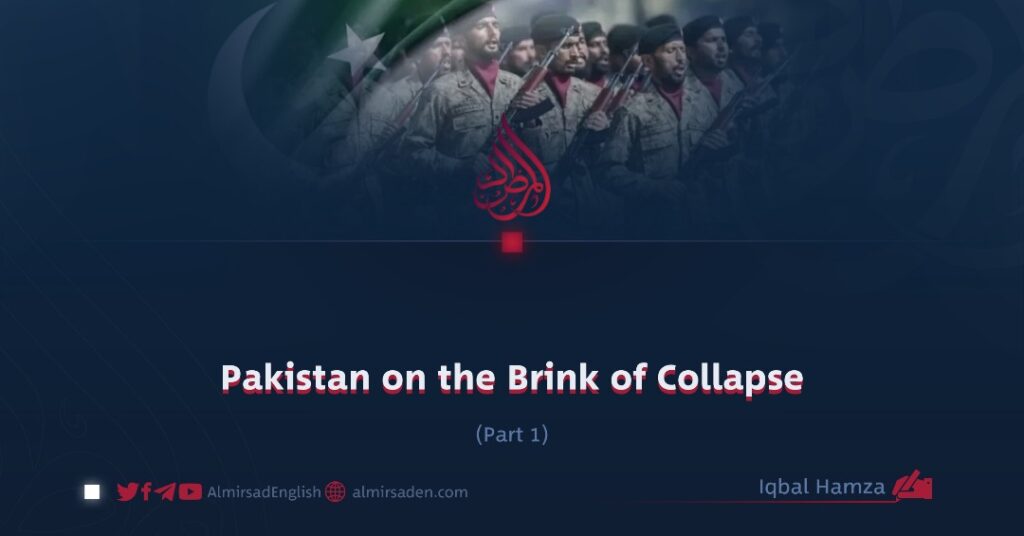Part 1
By Iqbal Hamza
The survival of any nation, and the durability of its governing system, rest upon the wisdom of its political vision, the consistency of its strategies, and the depth of its national policies. Across the world, states have emerged from diverse foundations. Some were born out of shared faith, ethnicity, or ideology, while others were carved into existence to serve the ambitions of greater powers. In such artificially constructed states, the people seldom possess a natural sense of belonging. Instead, their patriotism is manufactured, implanted through carefully designed propaganda to sustain the illusion of unity and purpose.
History shows that when these externally engineered countries lose control of their governing apparatus, their very existence begins to unravel. Pakistan stands as a prime example, now displaying unmistakable signs of decline and internal fragmentation.
The following are some of the evident indicators of Pakistan’s looming collapse:
1. Political Instability: The Crumbling Core
A closer look at Pakistan’s present condition reveals a nation fractured in spirit and vision. The people, the political system, and the parties that once claimed to represent them no longer share a common purpose. Two decades ago, nearly every citizen proudly echoed two national slogans: “Sab se pehle Pakistan,” meaning Pakistan First, and “Pak Fauj zindabad,” meaning Long Live the Pakistan Army.
At that time, criticism of the army was unthinkable. The military was seen as sacred, the untouchable guardian of the state. Today, that reverence has all but vanished. Millions have risen in opposition to it, and a significant portion of the population now believes that the most corrupt and self-serving individuals in the country are the current army generals.
Ordinary citizens are acutely aware that some of the most expensive properties and luxury resorts in the West are owned by these generals. The majority of citizens no longer wish to sacrifice their lives or livelihoods for the army’s private interests. The national conscience has awakened, and people now understand that slogans like “Pakistan First” were never truly about the nation; they were shields for the generals’ personal empires.
Political parties, too, have begun to distance themselves from military dominance. Where once the army dictated the political order, parties now seek their own independent course and openly demand accountability for the generals’ unlawful actions.
The Pakistani public has grown too conscious to be swayed by empty rhetoric or intimidated by policies of fear and coercion. In Khyber Pakhtunkhwa and Balochistan, thousands of young men languish in prisons, victims of the army’s oppressive campaigns. Yet these tactics have failed to instill submission. Instead, they have fueled defiance, deepening the people’s determination to resist.
The mask truly slipped when the military, acting at Washington’s behest, dismantled Imran Khan’s government. That episode convinced much of the population that the army serves not national interests but American ones. Today, Imran Khan’s party, despite commanding millions of supporters, has been dissolved, its leaders jailed, and even Punjab’s influential Tehreek-e-Labbaik Pakistan branded a terrorist organization.
In Balochistan, where the military never managed to secure genuine loyalty, the call for autonomy now grows louder. Suspicion has hardened into conviction, and the dream of freedom spreads with new vigor.
In summary, Pakistan’s territorial cohesion, once maintained through the military establishment’s iron grip, is now threatened by a profound shift in public sentiment. In Balochistan, Khyber Pakhtunkhwa, and even Punjab, resentment toward the army has reached its peak. The people of these provinces have broken free from the army’s ideological stranglehold.
When a population frees its mind from the myths that sustain a system, the collapse of that system becomes inevitable. Pakistan’s once-sacred slogans now ring hollow, remnants of a propaganda machine built to defend the privileges of a few at the expense of an awakening nation.
